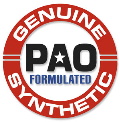
Prolong Super Lubricants Settles FTC Charges
Performance Claims for Motor Oil Additive Were Unsubstantiated
Prolong Super Lubricants, Inc., marketer of one of the largest selling motor oil additives sold in the U. S., has agreed to settle Federal Trade Commission charges that the firm made unsubstantiated claims for its automobile motor oil additive, Prolong Engine Treatment Concentrate (ETC). Prolong Super Lubricants, Inc. is based in Irvine, California.
The complaint detailing the charges alleges that Prolong made unsubstantiated claims that compared to motor oil alone, Prolong ETC:
- reduces engine wear at start-up; and
- extends the duration of engine life.
The complaint also alleges that Prolong made unsubstantiated claims that ETC:
- reduces corrosion in engines; and
- protects against engine breakdowns.
The complaint further alleges Prolong made unsubstantiated claims that:
- benefits that may be achieved by using Prolong ETC in race cars or under racing conditions can be achieved in ordinary automobiles in conventional use; and
- testimonials and endorsements of consumers made in advertising reflected the typical or ordinary experience of members of the public who use Prolong.
This settlement is the latest in a series of FTC law-enforcement initiatives targeting claims made by engine treatment manufacturers. The Commission recently charged the marketers of Dura Lube and Motor Up with making unsubstantiated claims for their brands of motor oil additives. Those complaints are awaiting administrative trial. The FTC previously halted allegedly deceptive advertising by the marketers of Valvoline, Slick 50, and STP, other major brands of engine treatment products.
The Prolong settlement would require scientific substantiation for a broad range of claims relating to Prolong ETC, or any other product sold for use in an automobile, relating to engine-wear reduction, engine-life extension, corrosion reduction, protection against engine breakdown, or racing benefits being achievable in ordinary driving. The settlement would also require substantiation for claims made for any product marketed by Prolong Super Lubricants, relating to the product's performance, benefits, efficacy, attributes or use.
In addition, the order would bar misrepresentations relating to tests, studies or research, and would bar misleading demonstrations, pictures, experiments or tests relating to any product's features, superiority or comparability. If Prolong employs user testimonials or endorsements in promotional material in the future to depict typical consumer experience with any product, it would be required to have scientific substantiation for the representation, or disclose what results ordinary consumers could expect to achieve, and the applicability of the endorser's experience. Finally, the settlement contains certain administrative record keeping and reporting provisions to allow the agency to monitor compliance.
The Commission vote to accept the proposed settlement was 4-0, with Commissioner Orson Swindle concurring in part and dissenting in part. In his statement, Commissioner Swindle said,
" I support the provisions in the proposed order prohibiting Prolong from making . . . claims in the future without adequate substantiation. The consent agreement, however, also contains provisions prohibiting Prolong, in connection with the sale of any product, from misrepresenting the existence or results of tests and from misrepresenting that a demonstration confirms the benefits of a product. While firms should not misrepresent the existence or results of tests or demonstrations, it is inappropriate to include specific establishment and demonstration requirements as remedies in an order without corresponding complaint allegations. In this case, and in others from the recent past, there is a troubling lack of symmetry between the complaint and the order."

